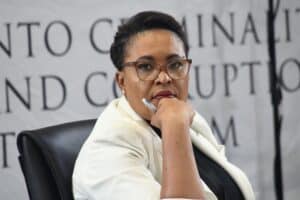A state funeral, far from being the ultimate honour of a grateful nation, is just another tawdry bauble in the ANC bangle.

A state funeral is a momentous event. This is an honour awarded only after a rigorous interrogation as to whether the deceased’s life was of such merit that they deserved to be memorialised in this way.
In SA, however, it has become meaningless. Just another bauble to be casually dispensed of by the ANC government to its comrades, their extended families and assorted hangers on whose contributions have, by any accounting, been to the party, not the nation.
As is the case with so many of the traditions of parliamentary democracy in the English-speaking countries, the characteristics of the funeral were shaped by the British. Initially reserved in its purest form for the titular head of state, it’s a long, elaborate event.
But since the full funeral is a ruinously expensive affair it made sense to have a pared down, less elaborate honour for the monarch and parliament to bestow – a ceremonial funeral for senior royals and statesmen.
Before the dawn of democracy in 1994, SA governments followed a narrower version of the British model.
Of the prime ministers who served before SA became a republic in 1961, Louis Botha and Jan Smuts got state funerals, as did most of the presidents, except for John Vorster (1983), PW Botha (2007) and FW de Klerk (2021), whose families declined.
ALSO READ: Former finance minister Tito Mboweni to get state funeral [VIDEO]
Post-1994, the floodgates opened. First slowly, then fast. A state funeral has become the ultimate – and final – determinant of social status for the ANC elite.
And as befits a party and government committed to an egalitarian society, the permutations of such a funeral, and hence the deceased’s ranking on the ANC roll of honour, are subtle and almost infinite.
There is a meaty State, Official and Provincial Official Funeral Policy Manual, with all the lavish detail that undertakers apply to the casket the bereaved family might select.
There are state funerals, official state funerals, special official funerals, provincial official funerals and special provincial official funerals. Each kind comes in two categories, the first with military ceremonial honours and the second with police ceremonial honours.
State funerals are for presidents or anyone who has stood in for any of our four presidents and nine deputy presidents while they are abroad, which happens regularly.
But that’s just the beginning of the jamboree. Official funerals cover the spouse of the serving president and deputy president, including ministers, speakers, chief justices and all provincial premiers. President Cyril Ramaphosa’s Cabinet has 75 people who qualify for this final ritzy ride.
ALSO READ: Mashatile declares special official funeral for late Mdladlana
All these funeral categories are replicated with the equivalent provincial ranks across the nine provinces. That’s a lot of people.
And if this doesn’t quite encompass every apparatchik who has ever held some kind of high office, or somehow pleased the ruling party, the president can declare anybody they wish as having the “extraordinary” credentials that open the lid, so to speak, for a special official funeral.
Needless to say, all costs for these funerals are paid for by the state. That includes internment costs, travel for the family and special guests, food and drink and any other “reasonable” costs.
The Presidency’s manual says if “the costs exceed the budget of the department, this expenditure must be provided for during the adjustment appropriation”. So die now, pay later.
In South Africa, a state funeral, far from being the ultimate honour of a grateful nation, is just another tawdry bauble in the ANC bangle.
It’s the ultimate example of corruption that have become the defining characteristics of a morally impoverished party.
ALSO READ: Pastor Ray McCauley’s funeral: ‘You took your last breath while I was praying for you’ [VIDEO]
Support Local Journalism
Add The Citizen as a Preferred Source on Google and follow us on Google News to see more of our trusted reporting in Google News and Top Stories.








